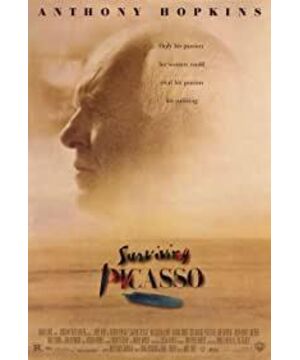In different periods of world film history, there are many classic films describing the life experiences of great artists, such as "An Unforgettable Song", "Mozart", "Copying Beethoven" and so on, which are familiar to Chinese audiences. The more time goes by, the more film directors tend to express the common character of these great artists. They can be short-tempered, petite, frivolous, frivolous, and self-righteous.
Therefore, Chopin portrayed in "An Unforgettable Song" released in the 1940s obviously bears the imprint of "High Daquan" from today's perspective. "Mozart" cleverly arranges Mozart's enemy Salieri as a narrative character, trying to express Mozart's life experience through the perspective of others.
Later directors also tried their best to lose the halo given to these great artists by public opinion when they were shooting similar themes. Its purpose was to represent their ordinary and real lives, which eventually evolved into deconstructing their artistic careers and achievements into trivial and cluttered pieces of life. Some directors even make the artist's daily life the core content of the film, deliberately downplaying their artistic achievements, ideals, beliefs and social influence.
In this regard, "Love Picasso" released in 1996 can be said to be the pinnacle. The film's director, James Ivory, portrayed a character that was too "real" but the exact opposite of what the average audience expected. Although it is an out-and-out literary film, not a commercial film like "Shakespeare in Love", it is still a bold attempt.
rambunctious private life
Even for literary films, such an image of Picasso is "non-mainstream": he is romantic, frivolous, irritable, surly, selfish, stingy and even hypocritical. The film's portrayal of Picasso's negative character is almost inexhaustible, and this creative idea was somewhat unacceptable at the beginning.
In this film, James Ivory relishes how Picasso still wandered among four or five women who were twenty or more years apart in age after he was 60 years old. Assuming that Ivory is a faithful reflection of Picasso's real life, even if the details are exaggerated, he is more fortunate than any director who has photographed the subject of a great artist.
First of all, he built a classic narrative framework of a literary film based on facts rather than deliberate drama: the story of a man and several women, not to mention the story of a great artist and several women. However, not every artist has such a dramatic life experience.
About a dozen years ago, a Chinese film and television company had planned to shoot a TV series that reflected Zhang Daqian (coincidentally, Zhang Daqian had visited Picasso, and the two cherished each other in art), and invited a researcher from the Sichuan Academy of Social Sciences to study Zhang Daqian. Scholars wrote the script for the play. The old gentleman spent two years to complete the script but was rejected by the producer, on the grounds that the plot content of the script was not "viewable" due to the lack of love scenes. The film party went to court.
For both 20th century painters, Zhang Daqian in the East and Picasso in the West have vastly different private lives. And James Ivory doesn't have to work hard on the script, just choose a few actresses.
Second, the story of a man and a few women enjoys philosophical prerogatives once they serve as the central thread of a film about a great artist. If you abandon this main line and instead show Picasso's brilliant artistic career, the film will become a cliché and boring commercial film, which is obviously not Ivory's original intention.
So he achieved his bold break with this type of biopic by deconstructing the layers of the great Picasso into a flirt, at least superficially, and turned it into content through an endless four-cornered love affair. Trivial and messy literary film routines.
mental distress in old age
With this narrative method, James Ivory successfully broke through the usual routine of the artist's biographical films. He magnified the "human nature" of Picasso as much as possible, and showed his debauched emotional life vividly to the audience. However, Ivory's original intention of making this film was not to deliberately belittle the artist. While showing his love life, the film also reflected Picasso's inner anguish, loneliness and sadness.
After living with Picasso for ten years, Francois, who could no longer bear his authoritarian style, resolutely decided to leave Picasso. The 70-year-old man leaned against the corner like a child and wept bitterly. Are any women leaving me?"
James Ivory wanted to articulate ideas that might be clearly reflected in mainstream narratives, but the exploratory director went to great lengths to opt for a more tortuous one. He deliberately made Picasso in his later years work tirelessly with several women, and there is no more substantial content in the film. He made the gray-haired old man look like a twenty-year-old hairy boy, impulsive, emotional, self-serving, stingy, and extremely macho.
From beginning to end, Picasso speaks and behaves like a mad psychopath, intoxicated in his own fantasy world, disdainful of the world but infatuated with the world.
The director hopes that the audience will not only see the shortcomings of Picasso, but also hope that the audience will realize that although Picasso mingled with women and businessmen all day and received the attention of public opinion, in his later years he was deeply lonely, depressed and autistic. It was difficult to extricate himself; his frequent changes of lovers were not frivolous, and he had always loved François so deeply that when the latter left him, he was so grief-stricken.
James Ivory tries to express the spiritual predicament that Picasso encountered in his later years purely from the perspective of his love life. This approach lacks the core elements of artist-themed films due to too little attention to Picasso's artistic career. And this lack of it just created some obstacles for the audience to better understand the inner world of Picasso in his later years. Between the story of a man and several women, and the story of a great artist and several women, more material needs to be filled.
View more about Surviving Picasso reviews











